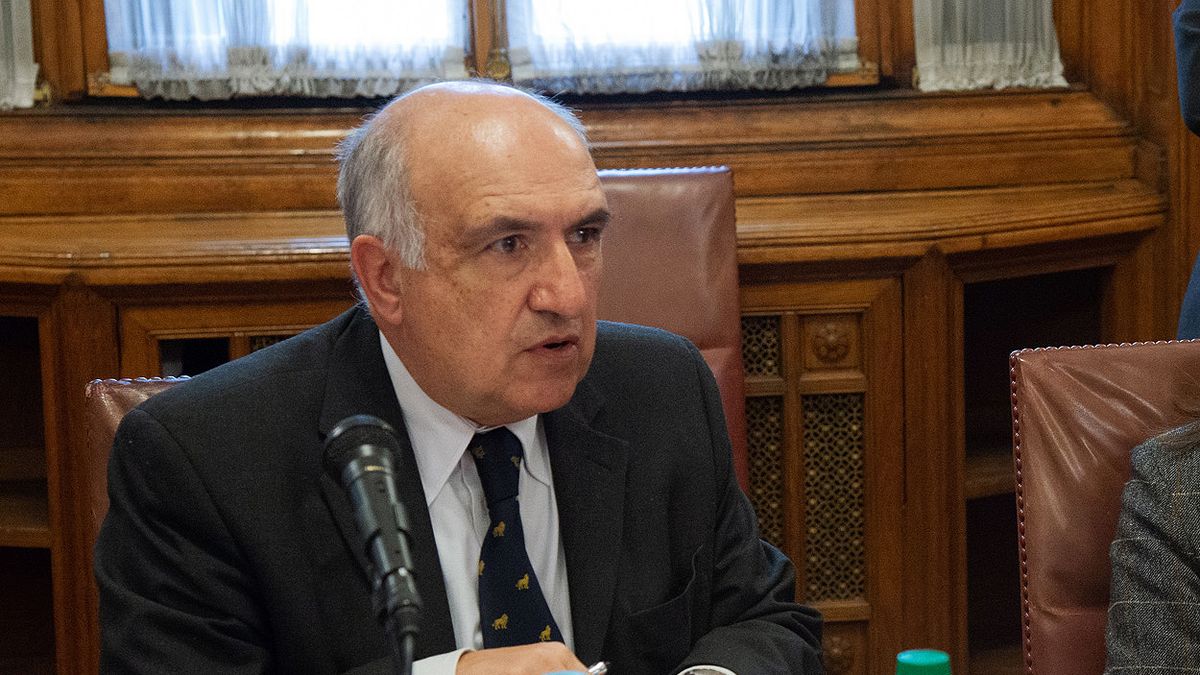The senator of Town meeting (AC), Guillermo Domenechheld a meeting last Monday June 12 with the president of the Central Bank of Uruguay (BCU), Diego Labat, in the BCU building. At the meeting, they discussed the debt restructuring bill for individuals, according to La Mañana.
The current bill presented by CA to the Parliament and the Executive power presents some modifications in search of making it “more comprehensive” than the one that was originally presented, including concepts such as “fair debt” either “interest limitation”, which arose after the Senate rejected the first project.
The meeting between Domenech and Labat is part of the round of talks that CA legislators are carrying out with different economic and political authorities from Uruguayabout a subject that they consider urgent, since affects between 600,000 and 1 million people” in the country.
CA’s intention is to find meeting points for the different views and discrepancies that have arisen in the other political forces since the first bill was presented, seeking to bring positions closer to, ultimately, give some kind of solution to the people indebted.
From CA they see as a positive sign that the BCU is open to dialogue on the subjectsince this means that the existence of the problem is recognized, which would mainly affect the “lower middle class” and less favored sectors.
However, in CA they are clear that although they are talking within “reasonable” terms, they cannot go from conversation to conversation without finding a practical solution to the problemin what, they understand, is a problem that “should have been resolved a long time ago.”
In addition, Domenech ruled out speculation that CA seeks electoral revenue through this billsince what is sought is to “solve” the origin of this problem, which are “the very high interest rates” that the 2007 law allows to charge.
What does the bill say about the small debtors of Cabildo Abierto?
In Article 1, the creation of “a judicial procedure to restructure the liabilities of natural persons” is proposed, which “must be preceded by a conciliation process in the administrative field“.
According to Article 2, “those debtors with private individuals or legal entities, or with state entities” who do not have a real estate asset, or have only one intended for housing and that does not exceed the cadastral value of 1.6 million Indexed Units (UI).
Nor may they be owners of vehicles that cost more than 150,000 IU according to the value awarded by the Single Vehicle Income Collection System (dirty), or who receive nominal annual income less than or equal to the sum of 240,000 IU.
In Article 9, it is added that the debtor requesting the restructuring must present a payment plan, respecting the requirements of Article 4, and taking into account the concept of fair debt (Article 15).
According to Article 14, it will be presumed that creditors acted illegally when:
- When granting a loan, they do not inform the debtor of the total amount of the credit to be paid.
- Advertise without it containing information about the interest rate.
- Carry out abusive practices for the collection of creditssuch as violations of the privacy of individuals, or the use of erroneous information.
Said behaviors would be sanctioned with a fine equivalent to 20% of the unpaid balance of the original creditconverted to UI on the date of the last amortization, and updated to the present at the TORCH of the 2%.
Article 15: For the restructuring of the payment, the fair debt will be considered, which is defined as the amount initially agreed in any currency (converted to UI), to which is added a 2% APR for interest, fines, or any other type of surcharge, and the payments made by the debtor are subtracted, for all concepts and converted to UI, up to the date of the restructuring request.
This fair debt will serve as the basis for the restructuring proposal, and this cannot exceed its amount, which can only be removed. “In case of proposed cancellation in installments, these may not exceed 30% or 40% of monthly income of the debtor in accordance with the provisions of Article 5 of this law”, says Article 16.
The maximum interest, according to Article 23, may not exceed the equivalent of 4 times the value of the rates at which the State is indebted.
The maximum interest that can be charged for operations in dollars “shall not exceed three times the value of the weighted averageby amount issued, of the coupons to be paid by the General Treasury of the Nation in the three most recent issuances of Global Bonds denominated in dollars at a fixed rate.
For both currencies, the maximum default rate will be set at a level twenty% greater than the corresponding maximum rate.
Source: Ambito




